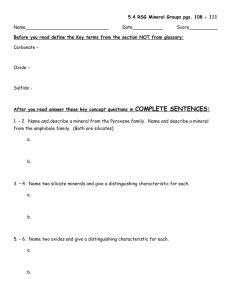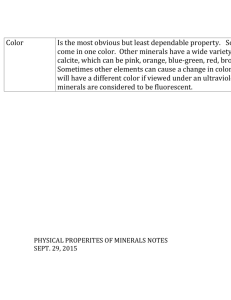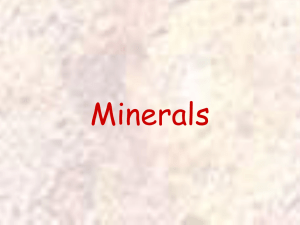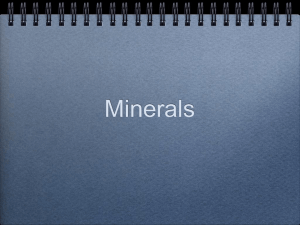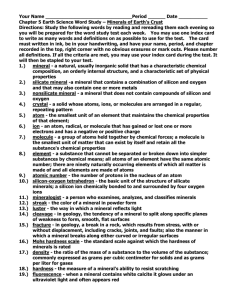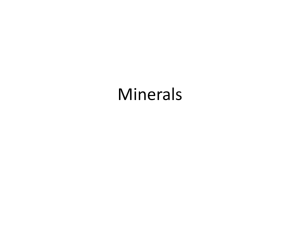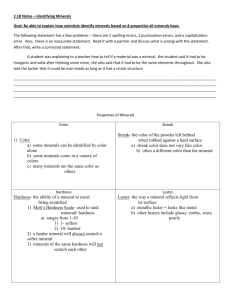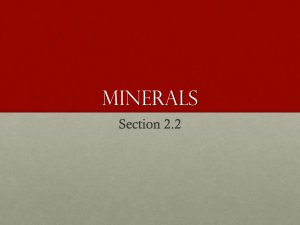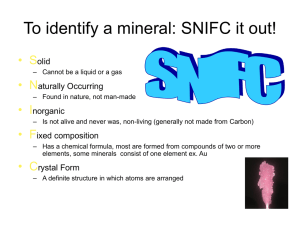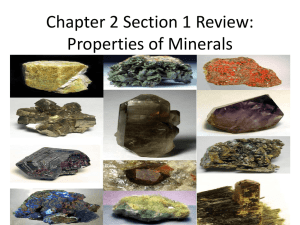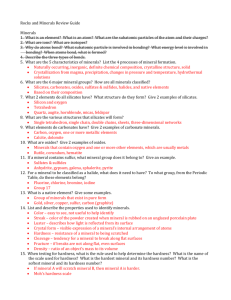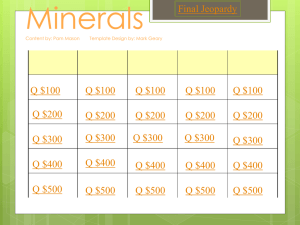Ch 5 Minerals Jeopardy
advertisement
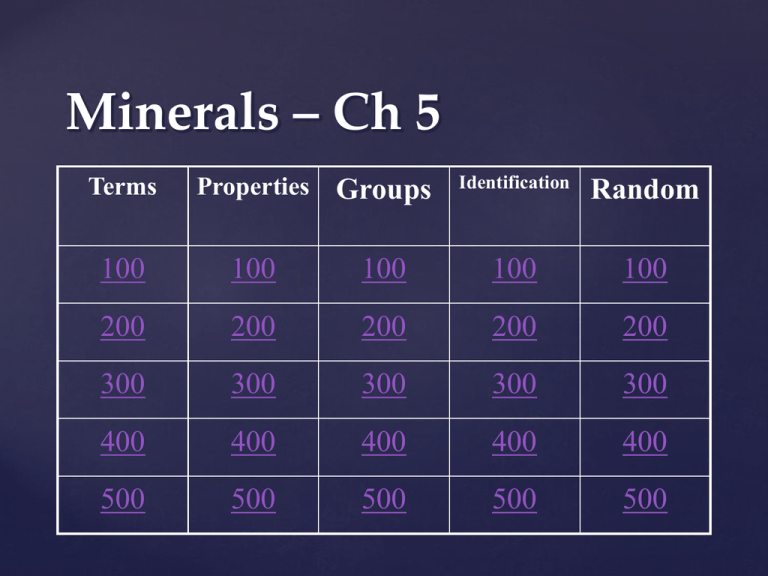
Minerals – Ch 5 Terms Properties Groups Identification Random 100 100 100 100 100 200 200 200 200 200 300 300 300 300 300 400 400 400 400 400 500 500 500 500 500 The mass of a substance to the volume is its ____ Answer Density Home The ability of a mineral to resist scratching is its _____ Answer Hardness Home Tendency of a mineral to break and form uneven, irregular surfaces Answer Fracture Home An inorganic solid with characteristic chemical composition and physical properties Answer Mineral Home Fluorite and Halite belong to what mineral group? Answer Halides Home The way that light is reflected from a mineral’s surface Answer Luster Home True/False: Chatoyancy means “cat’s eye” and has a silky appearance Answer True Home What is the color of a mineral in a powdered form? Answer Streak Home What physical property is unreliable as an identification clue for minerals? Answer Color Home What is the tendency of a mineral to split along specific planes, forming flat surfaces? Answer Cleavage Home A solid whose atoms, ions, or molecules are arranged in a regular, repeating pattern Answer Crystal Home What are the 2 main groups of minerals? Answer Silicates or Nonsilicates Home Minerals are usually _____, meaning they do not contain carbon Answer Inorganic Home Mineral that does not contain silicon and oxygen (SiO2) Answer Nonsilicate Home Mineral that contains silicon and oxygen compounds Answer Silicate Home True or False: A mineral that glows in ultraviolet light is phosphorescent Answer False (fluorescent) Home Oxides, Sulfides, Halides, Carbonates, and Sulfates are all major classes of what group of minerals? Answer Nonsilicate Minerals Home Cubes, hexagonal prisms, and irregular masses are common mineral structures for what group of minerals? Answer Nonsilicate Minerals Home If an unstable atomic nuclei decays into stable nuclei, the mineral is ____. Answer Radioactive Home What are 3 physical properties mineralogists use to identify minerals? Answer Color, streak, hardness, luster, cleavage, fracture, density, crystal shape Home What class of minerals is the most common on Earth? Answer Silicates Home What is the softest mineral on the Moh’s hardness scale? Answer Talc Home True/False: Quartz and Amethyst are examples of Nonsilicate Minerals Answer False; they are Silicates! Home True/False: Hematite is an example of a mineral in the Oxide group Answer True Home True/False: Galena and Mica both have fracture Answer False Home
